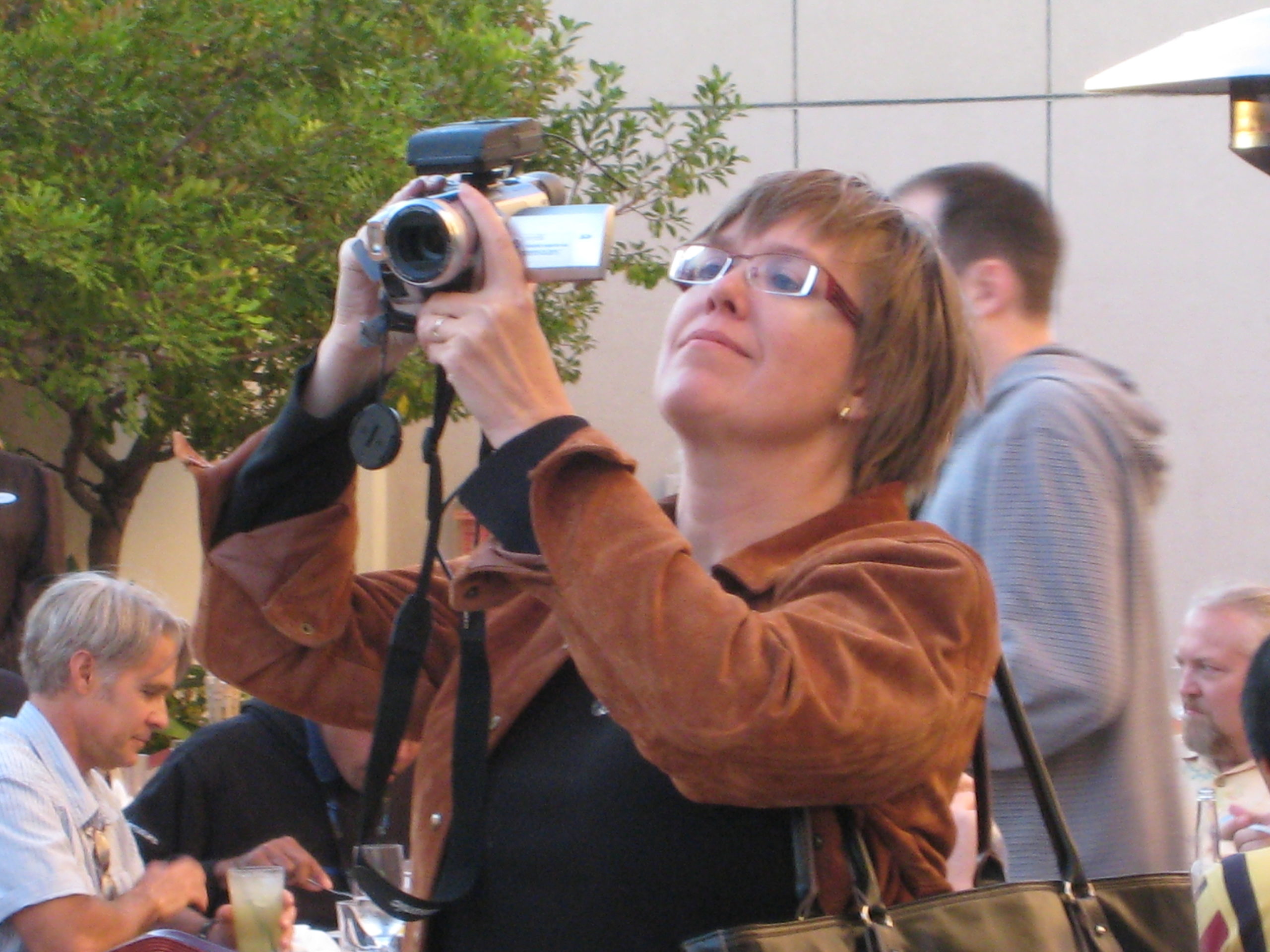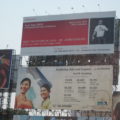continued from here
July 16: !@#$@# can’t do a CO driver’s test in a rented car. Can’t get a car loan without a CO driver’s license. WTF am I supposed to do?
I let my California driver’s license lapse a couple of years ago, because they kept trying to get me to do jury duty which obviously I couldn’t from Italy, and I thought it might get me into trouble to keep claiming to be resident in California. By then I had an Italian license and didn’t expect ever to need any other. So much for expectations.
When you move to Colorado, you’ve theoretically got 60 days to get a local driver’s license. I was not surprised to learn that, because my California license had lapsed and Colorado does not recognize the Italian license (even though it was a lot harder to get), I’d have to redo the written and road driver’s tests. This would be the fourth complete driving test I’d suffered through in my lifetime!
I had intended to start the process back in April, but was dumbfounded to be told that, for insurance reasons, I couldn’t take a driving test in a rented car. Several colleagues offered to lend their cars, but I was nervous about doing the test in a car I’d never driven before (I was still getting accustomed to driving again, period). The only solution I could think of was to wait til I actually bought a car of my own, then do the driver’s test.
As I neared a decision on a car to buy, I was told that it might be impossible to get financing on a car if I didn’t have a Colorado license…
okay, everything’s set, I’ll borrow Lynn’s car Friday. Which means I get to spend how many hours at the DMV tomorrow for the written test?
My boss Lynn offered the use of her car, a Toyota Camry that was at least a size I felt comfortable driving (I had nightmares of trying to parallel park an enormous SUV). But first I had to do the written test.
nets full of unflattering (to put it mildly) photos of Hillary, not so much of Obama. Does HE never look evil, dorky, etc.?
I was still seething over the treatment meted out to Hillary by the American media. While visiting my dad in hospital in the UK in June, I had explained my preference for Hillary thus: In the USA today, it wouldn’t be acceptable to make racist remarks about Obama, but it’s perfectly okay to make sexist statements about Hillary. Racism is politically incorrect, sexism goes unnoticed. That’s why I’d like to see Hillary as president. (That, and her experience.)
passed my written driver’s test, only one mistake. And the DMV wasn’t such a nightmare. Driving test tomorrow in Boulder.
Fortunately, the little local DMV office in Broomfield was not crowded, and I got it done in under an hour.
17: my first (and probably last) attempt at political satire
McCain is advertising on my site again. Guess where?
and the McCain ads appear to be earning me Google money. Hmm.
18: morning poem: prairie dogs irresistibly attracted to asphalt – raven sits on a fencepost – awaiting fresh roadkill
today’s schedule: meeting – drive test – meeting – test drives
After months of spending way too much money on renting cars, I was looking for a car to buy. Which was a lot more complicated than I anticipated.
my dad does not have cancer. Phew.
Those following me on Twitter back in June would have seen some angry and worried, but not clearly explained, tweets about cancer and smoking. Dad has had pneumonia seven or more times since December: cancer was an obvious possible cause. And, after 50 years of smoking, it would not have been surprising. I was sick with fear, but also angry about all those years I pleaded with him to quit, and he always said: “I’ll quit when my life is less stressful.” Well, your life will be a lot less stressful when you’re dead…
Cancer has now been ruled out, but they still don’t know what’s causing the pneumonia.
I am now a licensed Colorado driver. Now I just have to find a car…
The road test was easy, and parallel parking was not required (although, confusingly, there is still a diagram about it in the driver’s ed manual on the Colorado DMV website).
gin & lime: very nice way to end a hectic week
WS School parent’s banquet, with interesting speeches about why they sent their kids there
Still trying to edit all the video I have from Woodstock.
car salesman today thanked me for sharing my stories. Maybe I should be doing more of that
One of my favorite authors.
20: awake since 4 am, and don’t even have the excuse of jet lag
I wish the news from Italy would get better, but it never does.
21: adding the new crop of SAGE students to the Facebook group I run for Woodstock. They fly to India next week. It’s been a year already?
About a year ago, Rossella left for Woodstock. So much has changed in my life since then.
@sol lie or lay is correct, depending on the tense. This is a GMAT question:?!?
It’s scary that such basic grammar is on the “Graduate Management Admission Test“.
my first real furniture purchase in the US: a beautiful Shaker-style desk in dark “espresso dyed” hardwood, just the right size for my study
22: spent most of yesterday assessing the video situation. Learned we have over 150 hours, most shot by me, about 60 still need editing. Intern!
looking for recs on a decent quality, compact, lightweight lapel mic kit. Anyone?
buying a car is way too complicated
23: OMFG I live on Wisteria Lane.
The people around here are nice, but a little scary. I just don’t know what to say to the average American soccer mom.
just ordered iPhones for myself and Ross. Let the new adventure begin!
turtles have gone to their new home: http://www.lecornelle.it/ (unfortunately, typically annoying Italian flash site!)
24: lesson for the day: never take a heavy-duty antibiotic first thing in the morning on an empty stomach
I threw it up.
@ThinGuy Avalox, one of the new generation of kick-your-butt but don’t actually cure the infection antibiotics…
does anyone know how to do playlists with JW Media Player? Love the player, but the documentation sucks, and I’m not a programmer.
I can has car! Picking it up tomorrow. I feel so grown up…
It’s a Toyota Rav4 (ahem, a mini-SUV, I must confess…). Got a fantastic deal on a lease, on the very day that Chevrolet announced they would not be issuing further leases because they can’t predict the future value of their cars. I guess Toyota doesn’t have this problem.
possible food poisoning and a panicking offspring… what a fun evening!
25: interesting view in our back yard this morning:

photo by my housemate Kathleen
I was too sleepy to get out and figure out what the dogs were barking at. Wish I had!
I have a new car. It is red and very shiny. And fun!
the neighbors want to come and look at my car. I feel so… American.
@lskrocki yup, even got the plastic copy [of my driver’s license] in the mail today. Absolutely awful picture. My worst ever.
The Colorado DMV is famous for bad photos. They made me take my glasses off, so I look blind as well as stupid.
26: one of the great pop videos is back on YouTube
27: curtains (I refused to call them “window treatments”) are hung
28: my head has been CAT scanned. Something nasty going on in my sinuses. Which we already knew…
picked up my new iPhone this morning, haven’t had time to play with it yet (I do have to work sometimes, in between all this buying!)
twitting from my new iPhone!
29: also received yesterday a home-style phone (DECT) to use with Skype, no computer needed. Very cool.
@darios “tacchinare” ? questa parola mi e’ nuova – spiega!
A (younger) Italian acquaintance had to explain some young-people slang.
30: Enrico arrives tonight for a one-month visit. And I actually have time and brain space to be excited about it this time!
phishing scam claims I have won a “loyalty prize” from Poste Italiane. Not bloody likely
Hanging at the airport. Flight’s in but immigration is always unpredictable
Enrico took so long getting through immigration and customs that I was getting worried. Turns out they cross-examined him at length, but eventually decided he wasn’t a threat to national security. I don’t need the INS or Homeland Security to make my long-distance marriage any more difficult than it already is…











